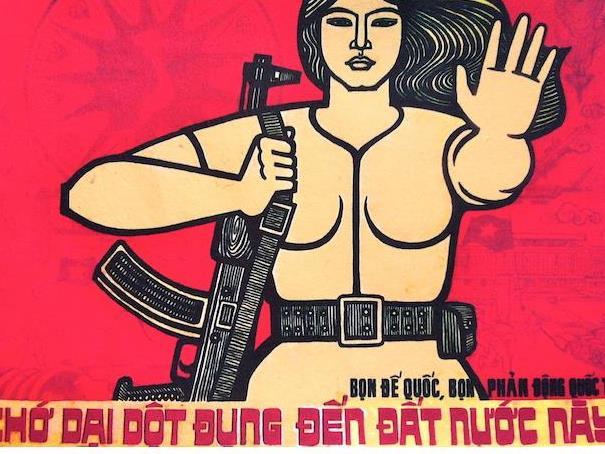Image: How on earth are the Americans going to persuade the Vietnamese to sign a treaty reducing their sovereignty?
The Trans-Pacific Partnership Agreement has finally been signed off by all the relevant ministers, including Andrew Robb from Australia.
To the rage of its critics, the terms have been kept staggeringly secret, but Wikileaks has posted the almost completed chapter on Intellectual Property Rights, which is short only of what is called a legal wash-through, which will not change anything substantive.
DFAT has been deeply buried in it, and provided briefings mostly to the corporate sector and dealing mainly in generalities. The Screen Producers Association has tracked it carefully, in between a lot of other lobbying.
What difference will it make to the screen sector? The answer is not much, because we have already sold the farm. Broadly speaking, the Free Trade Agreement with the US already stops us from expanding our range of cultural protection tools. The existing television quotas remain in place but in theory we can’t extend them. Every abolition is permanent.
The IP section pushes everyone else towards the US regulations, but we have already covered that too. We will not really know what difference that makes to our future copyright laws until the government finally does something about root and branch reform.
The piracy provisions are consistent with the Australian approach to ISPs, so there will be no change there.
During the Convergence review, various parties asked whether it would be possible to make overseas providers like Google and Netflix support Australian content; no-one has a clear answer but it is probably impossible.
The most controversial clauses are outside our gamut. They involve refer to an odd creature called the Investor State Dispute Settlement, which allows companies to sue governments for loss of revenue. This looks to be a beefed up version of provisions already enacted in NAFTA, the North American Free Trade Agreement and echoed in our deal with the US as well. The Federal Government is currently being sued by Phillip Morris in a Hong Kong court for compensation because our government discourages people from buying their product which kills people. Phillip Morris tried every Australian court and failed and has now gone offshore. In the last twenty years, the Canadian government fought 35 cases and lost ten, and coughed up CA$150m to US companies. A case for CA$10.5b over water rights has just lapsed. These are often vexatious claims, easy to launch and hard to defend. There are concerns in Australia that these provisions could be used against our Pharmaceutical Benefits Scheme.
It is possible that these clauses could have implications in the cultural sector, most obviously in terms of piracy, if studios or labels can prove a case about substantial loss. But the Federal Government’s recent moves against piracy suggest it is no longer likely to be held accountable for failing to act against pirates.
The TTPA now needs to go through both Houses, and could come to grief in the Senate.
The Greens are determined to oppose it, and off the record discussions around the traps suggest that they could harness the other independents. But, nobody knows what the ALP will do. It started under Labor and negotiations were carried out by the Gillard government. They may be vulnerable to attack on this and choose to pass it. That would be game over for the Australian resistance.
But the TTPA has to be signed off by Australia, the US, New Zealand, Canada, Japan, Singapore, Vietnam, Malaysia, Brunei, Chile, Mexico, and Peru. Notable absences are China, Taiwan and Korea.
Many of those governments are protectionist and authoritarian by instinct. They like to regulate the media, and the Investor State Dispute Settlement might look like a post-colonial nightmare. Vietnam, for instance, is run by the Communist Party.
The biggest hurdle of all is likely to be the US, where the Republicans are tearing each other to pieces and Hilary Clinton has publically stated that she has reservations, even though the original NAFTA was a Clinton deal.
So the general feeling is that we should watch and wait and read the fine print and campaign to see the whole document.
However, there is a neat sting in the tail of this. I attended a DEFAT briefing a few months ago, mostly full of industry representatives, and suggested that the issue of sovereign independence is very loaded and could provoke serious hostility. While that is a political issue beyond DEFAT, no-one rushed to tell me why I was wrong.
Essential Vision has published a survey about it. 15% were in favour, 23% don’t know and 62% said foreign companies should not be able to sue for losses due to changes in policy.
That is a very tempting number. National sovereignty has such a rousing ring to it.





